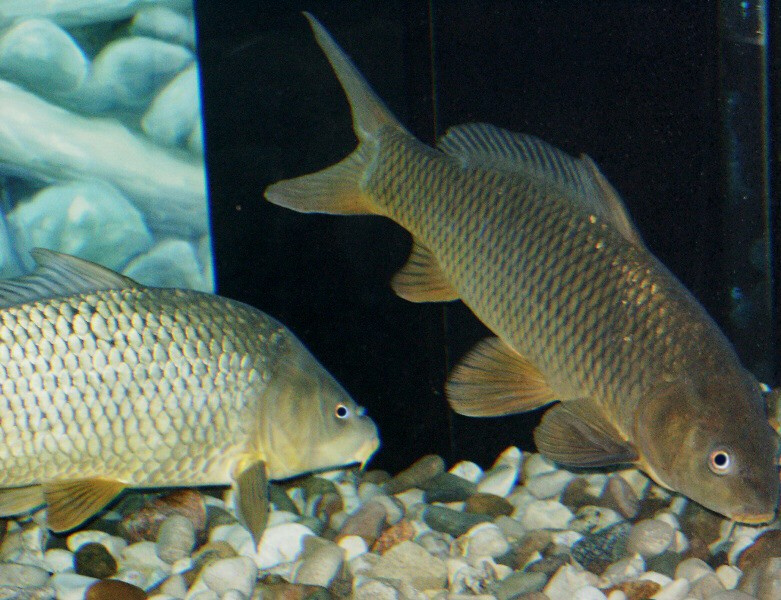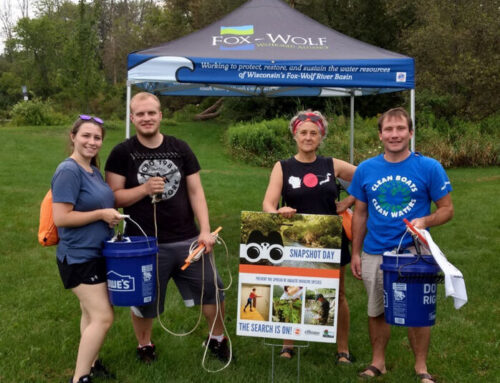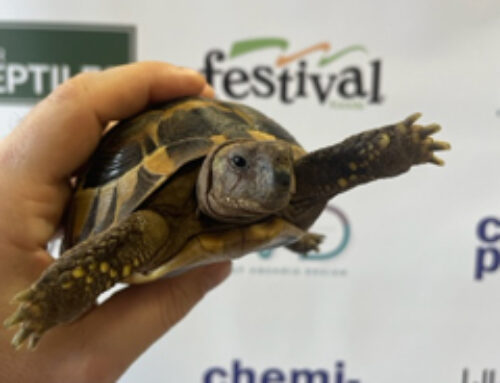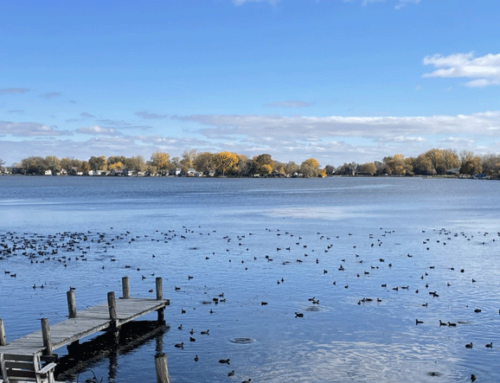Invasive Carp Pose a Problem: Chemical Treatment Used to Enhance Fishing Opportunities
The Wisconsin Department of Natural Resources (DNR), in cooperation with the City of Appleton, used a chemical treatment as part of a process to restore water quality and enhance fishing opportunities at the Appleton Memorial Park Pond.
On January 9th, the DNR used a chemical called Rotenone to treat the pond. It does not pose a risk to humans, animals or birds. The chemical, Rotenone, is a naturally occurring substance derived from the roots of tropical plants in the bean family.
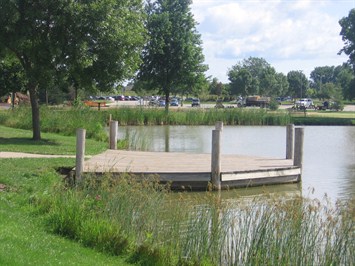
Photo Credit: Appleton Parks & Recreation
The 4.7-acre pond, located in Appleton Memorial Park on the city’s northeast side, is classified as an urban fishing pond, meaning that it has special rules for youth and disabled anglers (see the Wisconsin Fishing Regulations pamphlet for details). The DNR stocks the pond with rainbow trout each spring to provide fishing opportunities. Bass and panfish provide fishing opportunities for all anglers during the summer and winter.
Several years ago, Common carp were noticed in the pond. How they got there is unknown. These carp are Restricted in the state of Wisconsin, meaning that this invasive species is already established in the state but it is illegal to move them or introduce them to new waters. Common carp are native to Eurasia (specifically the Black, Caspian, and Aral Seas). They destroy vegetation and increase water turbidity by dislodging plants while searching the lake bottom for food which kicks up the sediment into the water. This deteriorates the habitat for species that need vegetated areas for breeding, shelter, etc. This in turn affects the entire lake or pond food web. The increased turbidity in the water also reduces light that reaches the lake bottom that plants need for photosynthesis.
Used in a highly-diluted solution by an experienced DNR team, a precise application of Rotenone was put into the pond to kill all the carp, and any other remaining fish, in the pond. The city pumped water out of the pond prior to the treatment to reduce the amount of water to be treated and to lower the level so that no treated water escapes the basin.
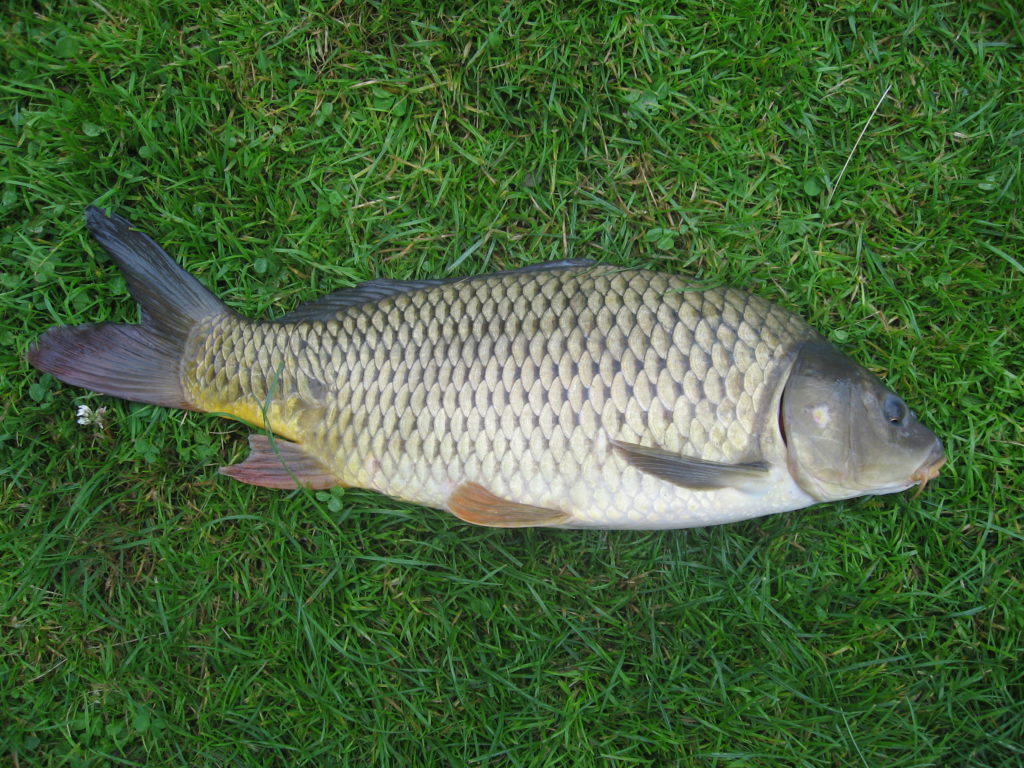 The chemical degrades rapidly, leaving no toxicity behind. The dead fish are not harmful to birds or mammals that might eat them. Mostly, the dead fish will sink and decompose, adding valuable nutrients to the pond’s ecosystem.
The chemical degrades rapidly, leaving no toxicity behind. The dead fish are not harmful to birds or mammals that might eat them. Mostly, the dead fish will sink and decompose, adding valuable nutrients to the pond’s ecosystem.
The absence of carp should flip water conditions from turbid to clear, allowing for the growth of aquatic vegetation and creating better overall habitat for desirable fish species. Following treatment, the pond will be stocked with bass and panfish. With better habitat, bass and panfish will be able to sustain themselves after a few stocking events, creating a year-round fishery.
The DNR will return each spring to stock the pond with rainbow trout, primarily to provide youth and disabled anglers with good fishing early in the year. With the right habitat conditions, and self-sustaining bass and panfish, the pond should again produce year-round fishing opportunities.
Questions? Contact Chris Acy, AIS Coordinator for the Winnebago Waterways Program including Calumet, Fond du Lac, and Winnebago counties at (920) 460-3674 or email at chris@fwwa.org.

